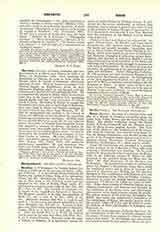

Hervetus, GENTIAN, a French theologian and controversialist; b. at Olivet, near Orleans, in 1499; d. at Reims, September 12, 1584. After studying the humanities at Orleans, he went to Paris where he became tutor of Claude d’Aubespine, afterwards secretary of state. Here he became acquainted with Thomas Lupset, an Englishman, whom he later followed to England, where he was charged with the education of a brother of Cardinal Reginald Pole. He accompanied his scholar to Rome, where he remained some time in the house of Cardinal Pole, occupying himself chiefly with the Latin translation of various Greek Fathers. Returning to France he taught the humanities for a short time at the College of Bordeaux, then went back to Rome and became secretary to Cardinal Cervini, the future Pope Marcellus II. In 1545 he accompanied this cardinal to the Council of Trent, and delivered an oration before the assembled fathers against clandestine marriages. In 1556, when he was already fifty-seven years old, he was ordained priest. Soon after, he became Vicar-General of Noyon and received a canonry at Reims. As pastor he preached very successfully against the Calvinists and wrote numerous pamphlets against them. In 1562 he returned to the Council of Trent in company of Cardinal Charles of Lorraine. He is the author of “Le saint, universel et general concile de Trente” (Reims, 1564; Rouen, 1583; Paris; 1584), and numerous controversial pamphlets. He also translated into Latin and French many works of the Greek Fathers, collections of canons, decrees of councils, etc.
MICHAEL OTT.

